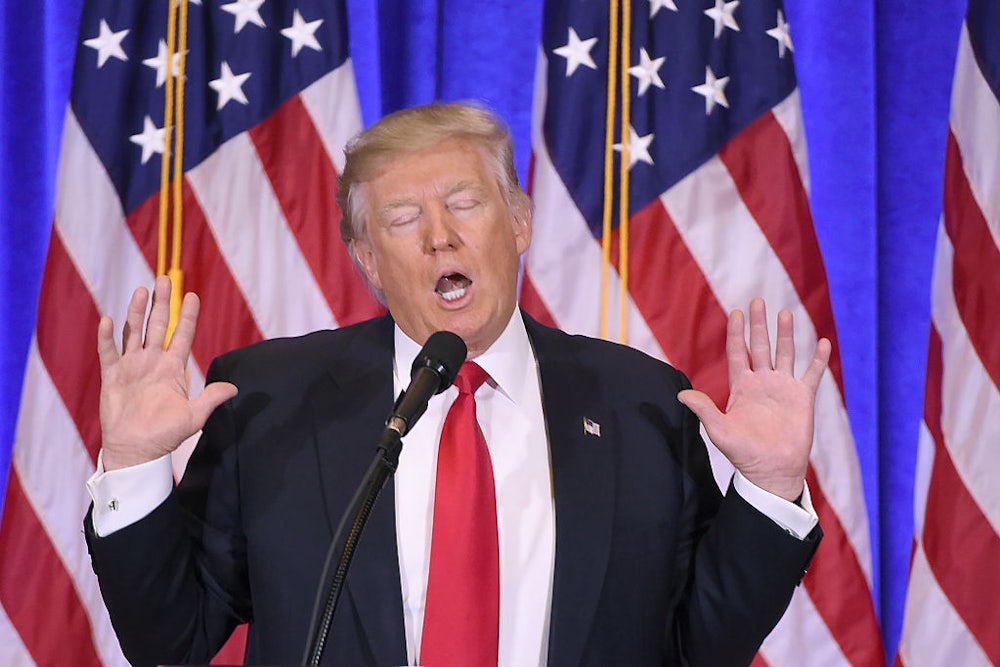Traditionally, a translator must try to replicate something of the timbre, the je ne sais quoi, of the original text at hand. But what can a translator do when the timbre of the original is obstructionism, incomprehensibility, and repetitiveness?
Picking up on a piece by translator Bérengère Viennot in Slate last month, Le Monde today worried about the future facing translators at foreign newspapers. On the one hand, Trump’s speech is simple, so it is not hard for English speakers to understand him. But by the same token, his vocabulary is so repetitive and impoverished that a translator faces real challenges in turning them into proper sentences.
Trump’s language is characterized by the very features that make a text untranslatable. He uses intonation rather than vocabulary to express his meaning, making his words difficult to understand on the page. He repeats words over and over again: tremendous, great, horrible. So, the translator should repeat words, so that the reader can gain an accurate impression of how the most powerful man in the world expresses himself.
But this fealty to the reality of Trump’s speeches can inhibit actual understanding of his politics. A few days ago, Viennot elaborated at the Los Angeles Review of Books:
As a translator of political discourse, you also have the duty to write readable texts: so what am I to do? Translate Trump as he speaks, and let French readers struggle with whatever content there is?
Translators across the world will today struggle to extract the (deeply newsworthy) pieces of information embedded in Trump’s first speech. But foreign media outlets will be up against an unprecedented communication barrier: The president of the United States speaks like a fifth grader, even when the world is listening.
